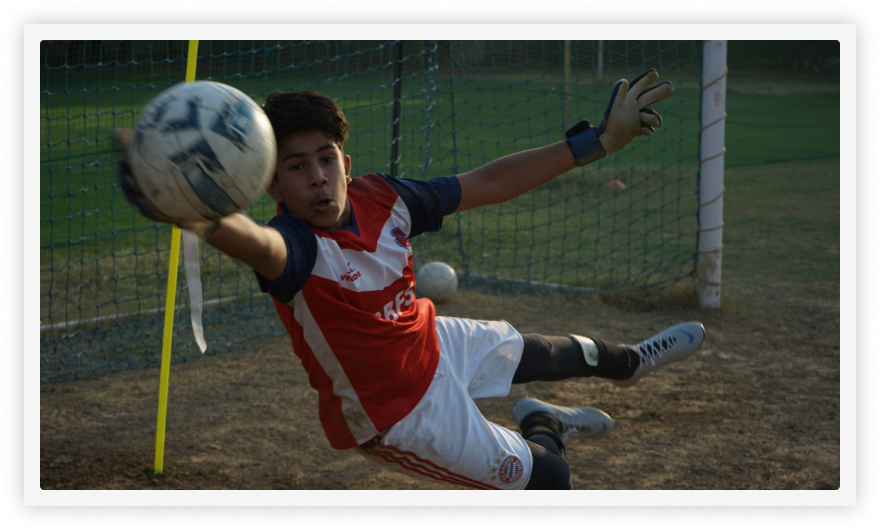Benefits of Playing Football: for Young Kids & Adults

Football is the most popular game in the world. It is played by hundreds of millions of people of all age groups worldwide. The FIFA World Cup is touted as the greatest event on earth, followed by people from all countries. Some children start playing football as soon as they learn how to walk and run enough to kick a ball, and at the same time, we also see that many 60 to 70-year-olds play football as a leisure activity. There are reasons why football is so popular. Let us look at some of the benefits of playing football.
Physical Benefits of Football
Football is a physically demanding game. It is the only popular sport in the world where you can use any part of your body except for your hands (unless you are a goalkeeper!), which means the demand on the body is very high. One cannot use their hands, which is the easiest. You can use all other parts of the body, such as your legs, head, chest, shoulder, back, etc. Thus, playing football allows us to improve our physical fitness by several notches as compared to others who don't play. Football is also known as a game of strength, speed and skill. This means you are not only building your physical strength while playing but also because of your agility and explosive power. A player has to run very fast and carry out football actions at a very high speed. These football actions include various physical skills such as passing, shooting, dribbling, juggling, heading and trapping the ball with different body parts. Thus, developing different techniques constrains different body parts, resulting in players' holistic physical growth.

Building Physical Awareness
Because football is such a demanding game that it is challenging to perform reasonably, the player has to take care of the body. As a result, the players become more aware of their bodies and how to care for them. After an intense game, they learn about nutrition, the importance of good sleep and physical recovery. This self-awareness goes a long way in ensuring healthy habits throughout one’s lifetime. As they say, once you are a footballer, you are forever fit!
Enhancing Spatial Awareness
Because football is played at a high intensity, the players have little time to react and respond to situations during the game. Hence, to be successful, they are trained to become more aware of their surroundings, including the positioning of their teammates and opponents. This helps them anticipate better and be ready and alert at every moment so that they can pass the ball in the right place and make the right decision at the right time, in the correct position.
Mental & Emotional Health Boost
Stress Relief
It is not necessary to play competitive football only. Most people play football as a leisure activity, an excellent way to relieve stress. Sweating it out on the pitch helps one unwind quickly, especially if you have been working hard, appearing in exams, or meeting deadlines.
Mood Upliftment
Playing football stimulates the release of endorphins, often referred to as “feel-good hormones.” These chemicals help boost mood and reduce feelings of sadness or anxiety.
Emotional Resilience
Competing in matches and overcoming tough moments on the field (like losing or missing a goal) builds emotional strength. Football teaches players to handle pressure and bounce back from setbacks.
Increased Focus & Engagement
Because football requires concentration and coordination, it trains the brain to stay focused—a benefit that translates well into everyday life.
Social Connection
Being part of a team fosters a sense of belonging, reducing feelings of loneliness or isolation.

Psychological Advantages of Football
Another advantage of football is that it gives the players confidence from the many skills they learn over time. They build trust in a larger social context as they develop more control over their minds and bodies and become fitter. Trying new techniques, tactics, and coordination exercises develops trust in oneself and the process. Players learn the importance of working hard and sweating it out to achieve their goals.
Social Development and Teamwork
Football, as we know, is a team sport, and hence, is one the most fun ways to teach teamwork to people. The goals of the sport can be achieved only as a collective. Collective responsibility and combined effort can be best taught through such exercises. This forms the basis of strong relationships with not just one’s teammates but also the various support staff and other stakeholders. Such lessons of complementary approach instead of unhealthy competition build bonding and relationships, which often tend to last a lifetime and help players develop a sense of social security. Collectively working towards a common goal and supporting each other in challenging moments are values that form the fundamental pillars of the game of football.

Life Lessons from the Game
Football teaches us the possibility of winning against stronger opponents. It also teaches us that no matter how many matches you have lost, you could still win the next one. Thus, it helps us realise how to enjoy the victories and learn from the losses, which is like a simulation of real life. Such life skills are necessary to continuously improve oneself by reflecting on outcomes and learning from them. A football match lasts 90 minutes, and playing many matches teaches you how to take losses in your stride and work towards consistently improving yourself for a long time.
Conclusion
The above benefits of playing football have a far-reaching impact on an individual's life, far beyond the pitch. Football players have the opportunity to experience and inculcate such values in their lives, which helps them develop into well-rounded human beings. Hence, if a healthy and happy life is what you want, football could be the answer—put on your football boots and head to the pitch!
FAQs
Q1: Can children start playing football at an early age?
Yes! Football can be introduced to children as young as 5. Academies like BBFS offer age-specific training programs that focus on fun, safety, and early skill development.
Q2: Is football good for mental health?
Absolutely. Football helps reduce stress and anxiety, boosts confidence, and fosters emotional resilience—especially in structured settings like BBFS non-residential programs that offer regular play and coaching.
Q3: What’s the difference between BBFS residential and non-residential football academies?
The BBFS Residential Academy provides intensive football training along with academics, accommodation, and nutrition in a fully immersive environment. The Non-Residential Program allows students to attend sessions after school without staying on campus—ideal for local aspirants.
Q4: Can older teens or adults join BBFS programs?
Yes! BBFS offers training pathways for all age groups, from kids to teens, and even advanced players looking to go professional. Residential academies are best suited for those seeking full-time football and education integration.
Q5: What are the career opportunities through BBFS?
BBFS offers pathways into competitive football, scholarships, scouting events, and trials for national and international clubs. It’s a hub for talent development with mentorship from former professionals.
Q6: How do I enroll in BBFS Residential or Non-Residential Academy?
You can explore and apply directly through the official BBFS website.